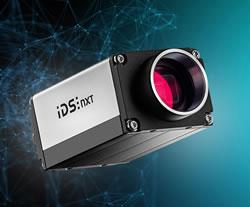Rice has role in new $250M robotics manufacturing institute
University among 40 academic partners working to create, deploy robotic technology
HOUSTON -- (Jan. 13, 2017) -- Rice University is one of 40 academic partners in a new robotics manufacturing institute in Pittsburgh that will be funded with $80 million from the Department of Defense (DoD) and $173 million in matching funds from more than 200 participating partners, including companies, local governments, academic and nonprofit organizations.
DoD said ARM will "organize the current fragmented domestic capabilities in manufacturing robotics technology and better position the United States, relative to global competition."
ARM said it will promote the use of robotics in small and medium enterprises and in critical manufacturing sectors like aerospace, automotive, electronics and textiles. The institute's 10-year goals include increasing worker productivity by 30 percent and creating 510,000 new U.S. manufacturing jobs.
"We will participate as a core university member," said Lydia Kavraki, the Noah Harding Professor of Computer Science and a professor of bioengineering, who will lead the institute's Rice component. "One of the main areas where we will lend expertise is in robot motion planning, which cuts across all the main themes of the proposal, including collaborative robotics and rapid deployment of flexible robotic manufacturing.
"A main advantage for Rice is the opportunity to work together with world-class robotics innovators and industrial partners in projects that tap our strengths in motion planning, artificial intelligence, formal methods, verification and model checking, and also sensing, haptics and controls, and are beyond the scope of a small team," she said.
Kavraki said the Rice participants include senior research scientist Mark Moll and faculty members Moshe Vardi, Swarat Chaudhuri, Ashok Veeraraghavan, Marcia OMalley and Fathi Ghorbel. She said that as projects develop, the team will recruit more faculty members whose work and interests are relevant to the mission of the Institute.
"This is also an opportunity for us to contribute to the mission of the institute, to provide leadership in advanced manufacturing and empower American workers and small companies," she said. "The ARM institute will place significant effort in workforce training for the benefit of society."
Follow Rice News and Media Relations via Twitter @RiceUNews
Located on a 300-acre forested campus in Houston, Rice University is consistently ranked among the nations top 20 universities by U.S. News & World Report. Rice has highly respected schools of Architecture, Business, Continuing Studies, Engineering, Humanities, Music, Natural Sciences and Social Sciences and is home to the Baker Institute for Public Policy. With 3,910 undergraduates and 2,809 graduate students, Rices undergraduate student-to-faculty ratio is 6-to-1. Its residential college system builds close-knit communities and lifelong friendships, just one reason why Rice is ranked No. 1 for happiest students and for lots of race/class interaction by the Princeton Review. Rice is also rated as a best value among private universities by Kiplingers Personal Finance. To read "What theyre saying about Rice," go to http://tinyurl.com/RiceUniversityoverview.
Featured Product

3D Vision: Ensenso B now also available as a mono version!
This compact 3D camera series combines a very short working distance, a large field of view and a high depth of field - perfect for bin picking applications. With its ability to capture multiple objects over a large area, it can help robots empty containers more efficiently. Now available from IDS Imaging Development Systems. In the color version of the Ensenso B, the stereo system is equipped with two RGB image sensors. This saves additional sensors and reduces installation space and hardware costs. Now, you can also choose your model to be equipped with two 5 MP mono sensors, achieving impressively high spatial precision. With enhanced sharpness and accuracy, you can tackle applications where absolute precision is essential. The great strength of the Ensenso B lies in the very precise detection of objects at close range. It offers a wide field of view and an impressively high depth of field. This means that the area in which an object is in focus is unusually large. At a distance of 30 centimetres between the camera and the object, the Z-accuracy is approx. 0.1 millimetres. The maximum working distance is 2 meters. This 3D camera series complies with protection class IP65/67 and is ideal for use in industrial environments.
